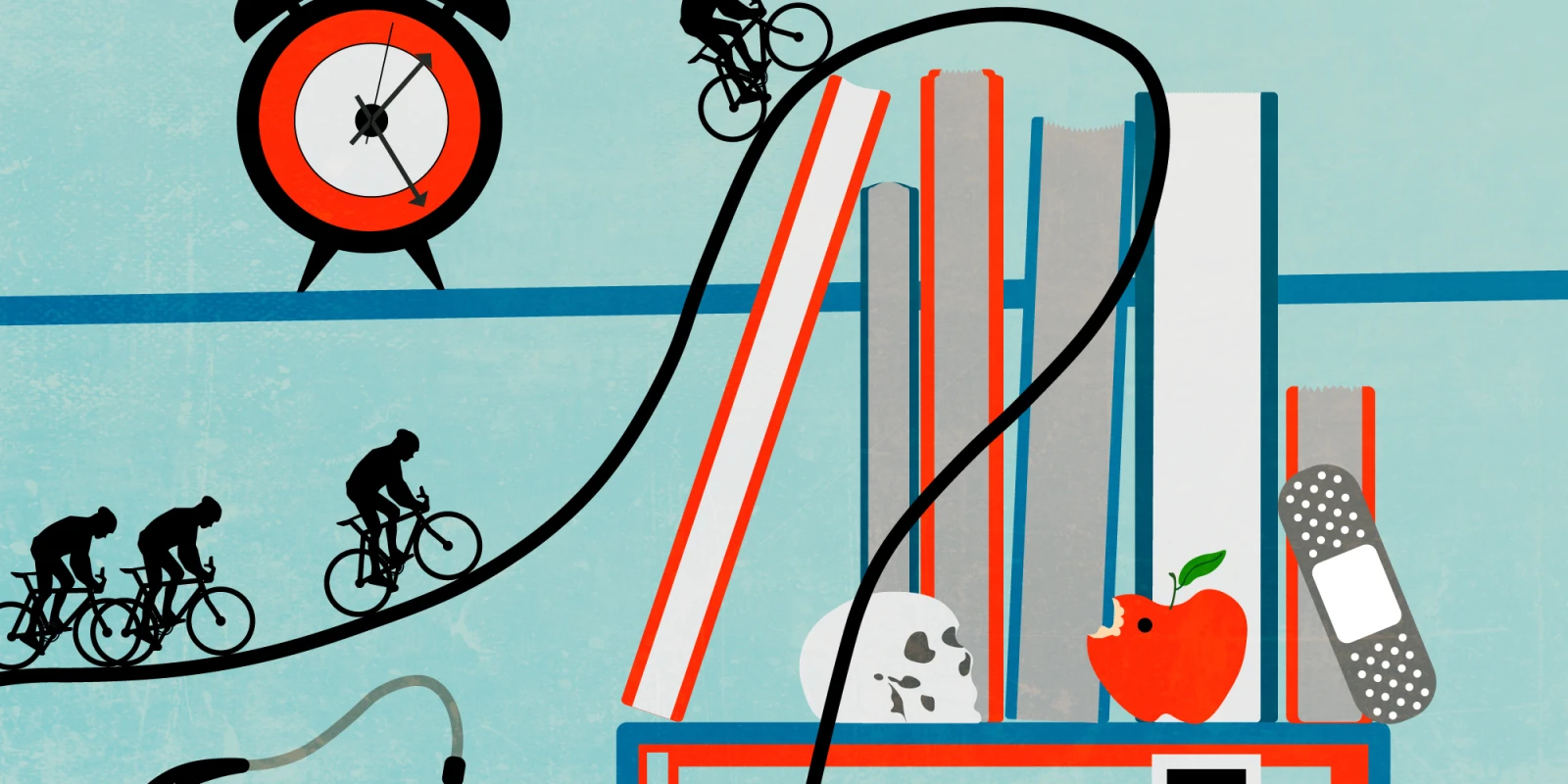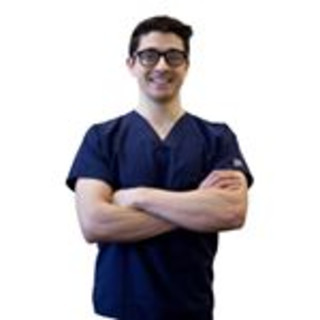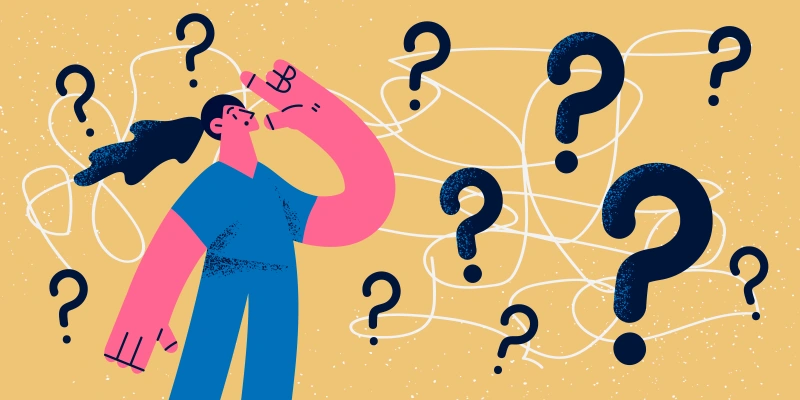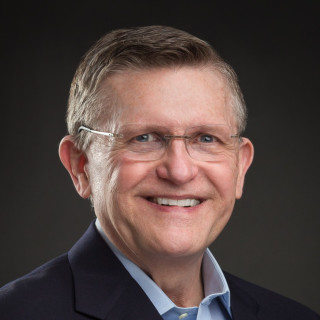
Looking back maybe it wasn’t the smartest decision. Would I do it again if given the chance? Yes. Would I do anything differently? Not at all. I wouldn’t change a thing.
I had been studying for 10 days straight. I was about to finish my first semester of medical school and the only thing standing in my way was my anatomy final. I had spent all semester preparing for this moment. I had spent countless hours redrawing pathways from Netter’s. I had spent more late nights in the cadaver lab than I could remember. I had five pairs of scrubs that reeked of formaldehyde and I had sacrificed my sleep, my health, and my well-being to prove that I was worthy of being a medical student.
I had 24 hours left before I was a free man. I was bordering an A and knew that if I could just get an A-, I would keep my A. But what do you do when you are at your limit? You make bad decisions.
Prior to medical school, I was an athlete. I was a cyclist. Not just a “biker” but a cyclist that raced around the country. I had moved up the ranks, I was on a sponsored team, and I had spent 18–25 hours a week training on my bike. Twenty-seven weeks of the year I would travel to some random destination — from Arizona to Texas to Wisconsin — and I would line up on the weekends and drain myself of every ounce of energy just to win a few hundred dollars.
It was Sunday morning and my exam was Monday at 9 a.m.; I had a 60-minute practical exam and a 50-question written exam. I woke up, I was tired, I was drained, I was exhausted, and I didn’t know how I was going to spend the whole day studying. Naturally, I looked for an out.
I remembered hearing there was a big race in Scottsdale. It was what we call a criterium race, a short circuit, tight-cornered, timed, fast-pace bike race on closed roads. I did the math, I hadn’t raced in four months. I wasn’t training regularly, but I knew I still had my fitness, I knew I could get there, get ready, race, and be back home studying, all within three hours. It was the break I needed. No, it was the break I WANTED. So, I bit the bullet. I signed up, and next thing you know I was on the starting line. I was ready to release all of that pent-up frustration and angst.
I remember the first half of the race, I felt free. I felt alive. For the first time in months, I felt like I was in control. I had already collected several hundred dollars in prize money from intermediate sprints when I decided to make a move on the other racers, I jumped the “field” (the other riders), flew out ahead, went into a full sprint when … splat. Bike malfunction.
I went face first into the concrete. In retrospect, I should have eaten breakfast, concrete doesn’t taste as good as oatmeal. I was going 34 miles per hour when I hit the ground. As any athlete knows, I had one reaction: “is my bike OK?” I jumped up, grabbed my bike and checked my shoes, then noticed a pool of blood on the pavement. It was growing larger. A stream of blood pouring from my chin to the concrete. As volunteers rushed over, I was put in a chair. Sans any friends or family, I was put in an ambulance and raced to the hospital.
I had lacerations, contusions, abrasions down both arms, on both shoulders, on my back, a wound on my face that looked like the map of the Philippines, and a gaping hole in my chin exposing my mandible and my depressor, mentalis, and platysma muscles. That night at 9 p.m., I had a three hour plastic surgery from a microvascular plastic surgeon who re-approximated and reattached my muscles. I was put under general anesthesia, and thankfully my fellow classmates picked me up and took care of my post-surgical medications and recovery.
This is the part of the story where everyone asks how I felt the next morning. To be honest, I can’t remember. I woke up at 8:30 a.m., put on a tank top, with my arm in a sling, bandages and bloody gauze everywhere; I went to my anatomy final exam. My professor tried to stop me, but I refused to leave and luckily took the final. I didn’t get that A, but I managed an A- for the semester and I learned more lessons in 24 hours than I learned throughout the semester. That night I received a phone call from my Dean. Battered and bruised physically, I was now on the “wild student” list; she informed me that I had taken the exam while under general anesthesia and that I should have stayed in the hospital that night. I should have paid attention in that anesthesia workshop.
In retrospect, this was a life-changing experience. No, I did not learn to stop riding my bike but I learned some valuable lessons that have served me over the past four years.
Take care of yourself. As a medical student and PhD candidate, the volume of work can be overwhelming. But work and studies are not an excuse to neglect your health and well-being. By eating right, working out every day, meditating, and journaling, I no longer need to take time off or race to release my frustration and angst.
Find what works for you. Prior to medical school, I was a competitive athlete but I was still the cyclist who always helped others. After my accident, I invested all of my time into helping my fellow students and giving back to those who helped me throughout my recovery. My accident was one of the reasons why I ran to become Student Body President.
Use your time wisely. I remember sitting in the ER for hours that afternoon. Luckily, I had my anatomy notes on my iPad with me, I studied that afternoon like nothing happened.
Being a patient is humbling. Sure, we have all been patients, but that day I noticed every move, every sentence, every action that each nurse, resident, and physician took. As healthcare professionals, we often forget that each patient is more than just a “24yo white male CC: s/p bike crash in room 208”. Patients are human. They are watching your facial expressions, they are listening to you type on the computer in the corner, they are questioning why you look like you haven’t slept in five days.
Don’t take things for granted. We wake up every single day with only one guarantee: today is all we have. I hear my colleagues complain about how hard things are or how they haven’t seen their friends in weeks. Medicine isn’t about what I need or what I want, it’s about helping those who need us. That accident taught me to live every day like it is my last. Even with the long hours and hard days – I know that medicine is still a privilege that can be taken from me at any given moment.
Frank Cusimano is a third-year medical student and third-year PhD candidate at AZCOM and Columbia University, respectively. He is the host of the Surviving Medicine Podcast and you can connect with him at his Blog, on Instagram, or on Twitter. Feel free to join the SurvivingMedicine Community of medical students and physicians. He is a 2018–19 Doximity Author.
Illustration by Jennifer Bogartz






